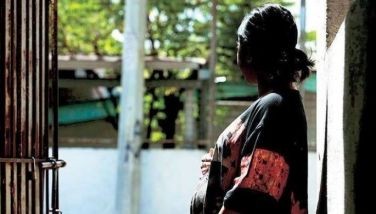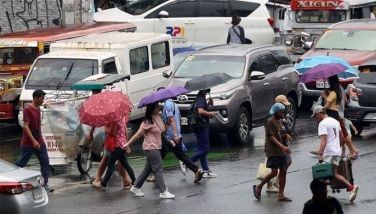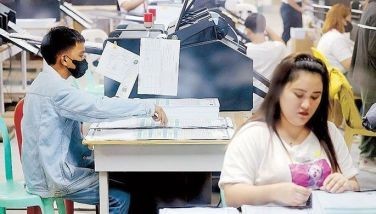Healing from the 'drug war' involves being heard, being in community with victims
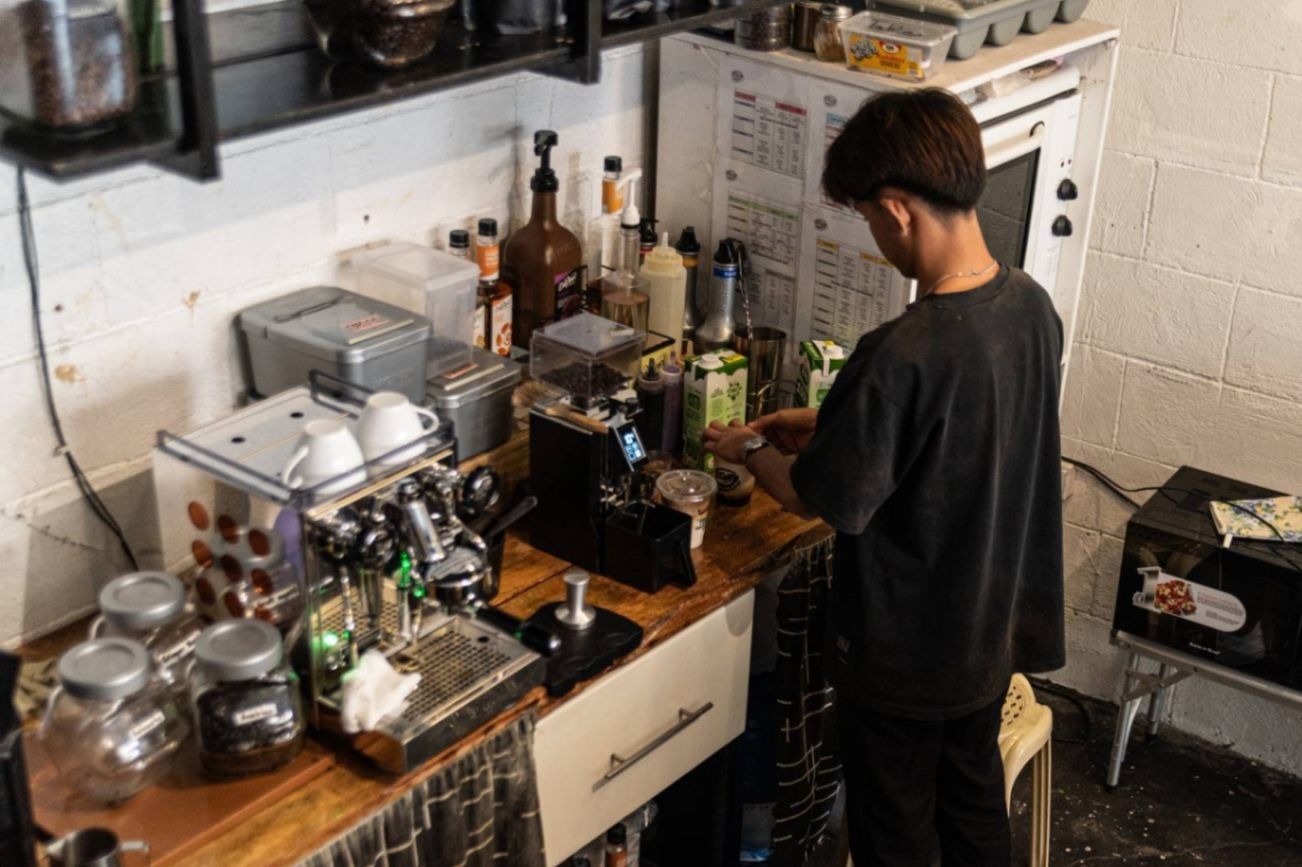
MANILA, Philippines — Healing comes in different forms for everyone — what works for one person might not be as effective on another— and it can mean different things for different people.
“When you talk about healing spaces, it’s also about the emotional, psychological space,” Inez Feria, founder and director of NoBox Philippines, told Philstar.com in an interview.
That space includes how individuals connect with each others, especially for those who felt as if they weren't seen, whose statements were doubted, and for those who experienced being talked down on.
NoBox Philippines was founded in 2014, two years before former President Rodrigo Duterte — whose regime is known for its bloody "drug war" — launched the "Tokhang" operations that became associated with extrajudicial killings. The organization focuses on providing harm reduction training and has been actively promoting a more humane way of “treating” those involved with drugs.
Feria said that, even before the 'drug war', there were already preconceived notions for persons whose lives included drugs. Harm reduction advocates discourage using words like "addict" and "drug user" because these carry negative connotations for what is a medical problem.
However, once the killings started under the Duterte administration, she said the issue “became more personal to more people.” The government’s crackdown on drugs resulted in the killings of thousands that the government acknowledges, and thousands more attributed to extrajudicial killings. Even the deaths during recognized police operations are under review by the Department of Justice, which has found irregularities and lapses in protocol in some of the cases it has finished reviewing.
Government peg the total at around 6,252 victims and the Office of the UN High Commissioner for Human Rights reported the death toll at 8,663, but rights groups said the actual figure could even be triple the UN agency’s number.
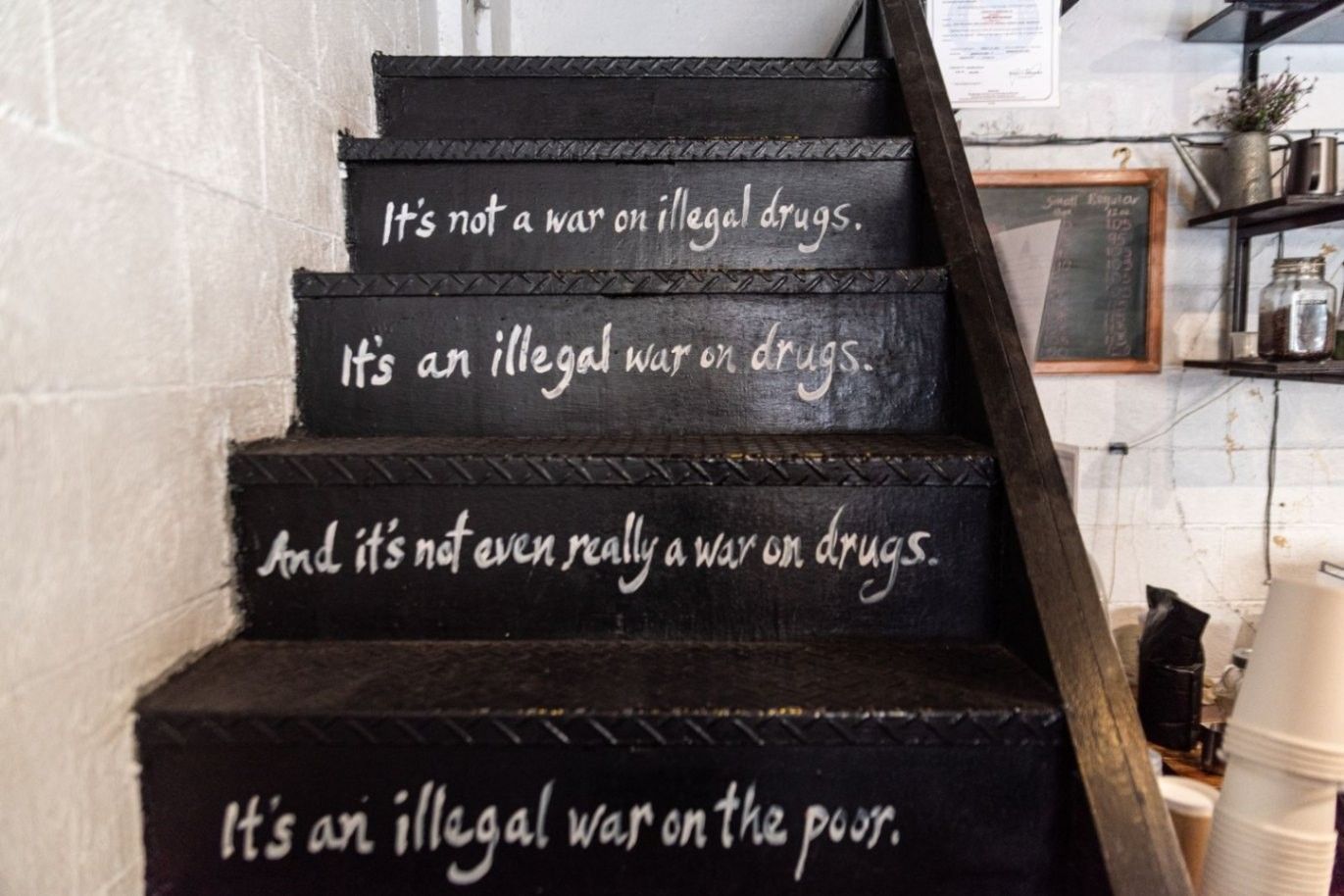
Thousands were killed — many of whom were the breadwinners of their households — and thousands of families were also left behind to fend for themselves and to deal with the trauma of the killing of a loved one.
For persons whose lives include drugs, the government has provided funding for rehabilitation facilities and even so-called community-based programs via local government units.
But what about alternatives to that and what support is given to families left behind by EJK victims? Where are the communities created for them?
‘Meeting people where they’re at’
At NoBox Philippines, Feria said that their focus is to “meet people where they are at” and that means providing someone with what they need at the moment, even if it only entails making someone feel safe. There is no exact program as the needs of their “community partner” — what they call their clients — vary from person to person and the pace of their “healing” is also different from one another.
This follows a “harm reduction” process, which focuses on the individual that needs help instead of having a one-size-fits-all program for everyone.
Feria notes that in some of their interactions with persons whose lives include drugs, community partners were surprised that someone would listen to stories of their struggles and would actually believe them.
“They learned that they have a voice that needs to be heard,” Feria said.
She gave anecdotes of working with community partners who echo statements that they are no longer useful in society after having been labeled as “drug addicts” — a label that has since become more dangerous because of the "drug war".
One of the key things NoBox Transitions is doing in engaging with its community partners is fostering trust and building person-to-person connections.
“[Because] if you have a society that’s ready to condemn you, again, you’d want to protect yourself… why are we already blaming them, why can’t we see that there are reasons for someone to hesitate in opening up?”
For someone to reach out and ask for help is already a big deal. “We’re so hung up on finishing the worksheet, finishing the module, the program, and then graduating,” Feria said, referring to the common requirements in government-run rehabilitation programs.
“But you don’t see those moments… it’s actually hard to ask for help and find somebody you can trust.”
What now, with breadwinners gone?
Meanwhile, brewing sadness turned to brewing coffee for some family members left behind by “drug war” victims. Br. Jun Santiago, who started Silingan Coffee Shop at Cubao Expo in 2021, said the goal was to give mothers and those who lost their loved ones — especially breadwinners — access to a “safe” livelihood, where they could work without prejudice.
Silingan means “neighbor” in Cebuano, which is essentially what the victims’ families lost during the height of the “drug war.” Santiago said it was “a dark moment for our country,” where a culture of small communities thrives.
The first few months ended in the red, Santiago told Philstar.com. He had to borrow money to keep the coffee shop afloat. “The main purpose of this is to make sure that you have salaries,” Santiago told moms and relatives-turned-baristas.
But what started out as an economic opportunity paved the way for a space where they could share their own experiences and lean on each other when times get rough, especially for those who decided to pursue cases against the government.
“When you go here, you don’t need to worry what other people think of you,” said Karl, who lost his mother and his stepfather in 2017, in an interview in Cubao.
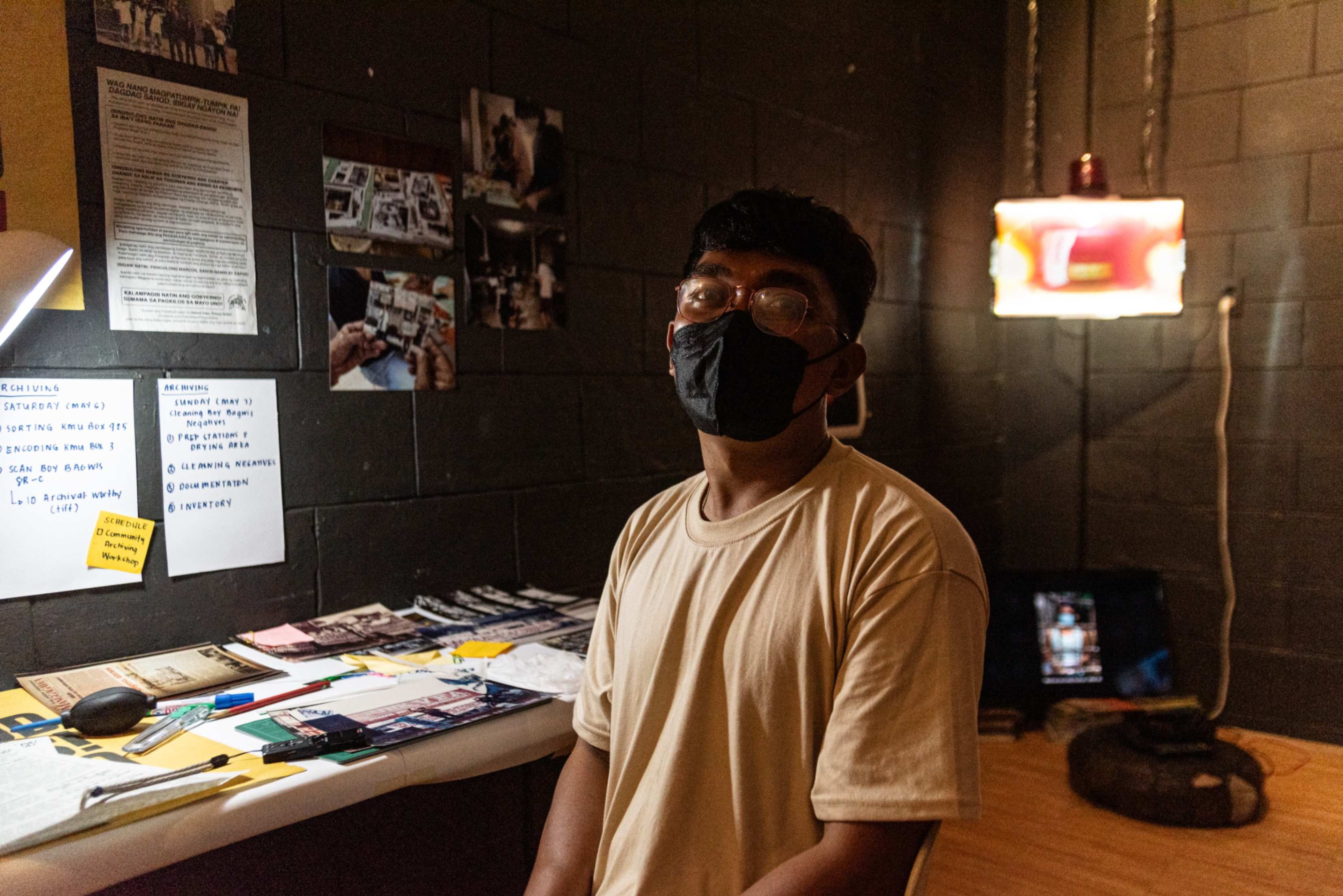
Br. Santiago later asked them if they were ready to tell customers stories of their experiences. “We want to secure the history of the Philippines… they serve as living archives if we can say that,” he said.
The first few months were hard, said Sharon Angeles, the head barista at Silingan. But after some media coverage, including a feature by the New York Times, she said they have had to adjust hours to accomodate customers who were pouring in.
“Before, we would already be happy if we earn P500, that’s about five or three customers,” Angeles told Philstar.com. “Now, they come in groups… they visit the coffee shop all at once.”

What started out as an opportunity for 10 grew to a staff of 28 baristas — all of them working in shifts to make sure there is room for everyone. Now, a mobile coffee shop also goes around in what used to be the “hotspots” for the killings in Caloocan, Malabon, and Pasay.
“Telling my story helps me heal,” Mary Anne Domingo, a senior citizen and a barista at the Silingan van said when they were stationed at Baclaran Church. She later added that being there helps her cope as she found her own little community, aside from getting the opportunity to earn money.
“I already reached an age which may not be suitable for hire. Where else can I find a job? But through the coffee shop, I can still continue with my life and this is where we saw how we were fully accepted without judgment,” she added.
Healing does not come in one go
In the Santa Cruz district of Manila, Church-based Program Paghilom guides orphans and widows of Duterte’s "drug war" through a nine-week "psycho-spiritual intervention" where they spend nine Saturdays in a program crafted to help address what they are feeling.
The program was initially designed for the homeless, but when the killings started, program founder Fr. Flavie Villanueva said it was not difficult to shift the focus and include families left behind by the victims.
“Most if not all that were killed were breadwinners… [we] thought that care was needed for those left to care for families left behind, which were mostly mothers and grandmothers,” Villanueva told Philstar.com.
“Care was also needed to avoid them from ending up in the streets.”
The program includes a portion where participants narrate their experiences and testimonies of what happened when their loved ones were killed, which then becomes “a sacred document,” a legal affidavit turned over to lawyers assisting the program.
Orphans are accorded educational assistance, while others are also given livelihood assistance. There is also a capacity-building program for those who are later identified as leaders or area coordinators.
It ends with a three-day retreat to help participants process the nine-week program.
Faith is not a barrier in the program, although there were people who questioned how God would let them experience such a thing. In one instance, Villanueva said he told a grieving woman: “Jesus weeps with you,” which then helped her calm down.
“For healing to be authentic, there has to be an element of faith, that is so significant in this process,” he said.
Except for the opening song “Huwag Kang Mangamba,” which participants noted reminded them of God and His presence, sessions did not focus too much on religion. Orphans, widows, and other family members spent the second Saturday of the programs sharing with one another their experiences and what they’ve been doing to look after themselves.

The program is now in Batch 18 and over 300 individuals from different communities have joined since it started.
Villanueva said they hold a general assembly twice a year. What was a room full of victims has become a “sea of hope”, he said.
“We’d like to believe that they saw a family, they saw a platform, they saw a sacred space where they could be [a] part of instead of them being judged or bullied in their communities and that process of justice is something that I’ve seen that they have experienced,” Villanueva said.
The last phase of the program is Project Arise, where EJK victims buried in common graves are exhumed, given an autopsy by Dr. Raquel Fortun, and are placed in an urn to return to their families.
“I tell them they’ll have a chance to hug their family members once again,” he said.
This story was produced with the help of a grant from the Drug Policy Reform Initiative.
- Latest
- Trending




















